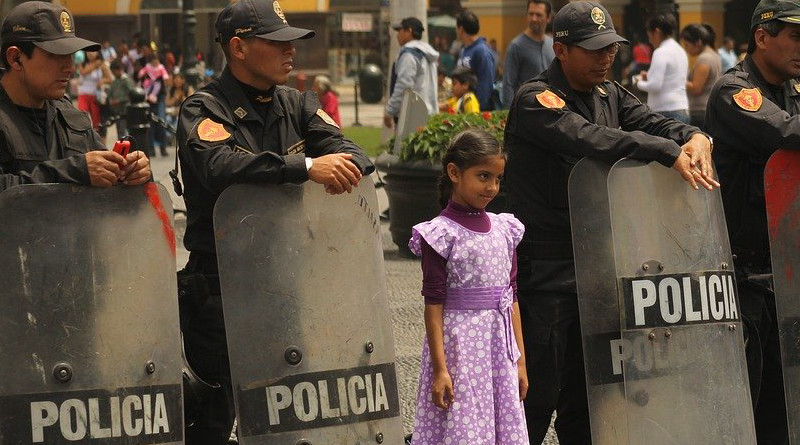Latin America The Deadliest Region For Human Rights Defenders – OpEd
By Thalif Deen and IDN
The world’s human rights defenders (HRDs) continue to be under constant attacks worldwide—with Latin America branded as the deadliest region.
In its Global Analysis 2022 released April 4, the Dublin-based Front Line Defenders (FLD) provides a long list of threats faced by HRDs in all regions of the world, along with the names of 401 HRDs killed in 26 countries in 2022.
The figures are based on statistics by the HRD Memorial, a collective initiative of human rights organizations working to collect and verify data on the killings of HRDs each year.
“In a grim milestone, for the first time we saw more than 400 targeted killings of human rights defenders in 2022. While Latin America remained the deadliest region in the world for human rights defenders, we also saw a more dangerous landscape for defenders in the context of Russia’s full-scale invasion of Ukraine,” said Olive Moore, Interim Director of Front Line Defenders.
“These human rights defenders were deliberately targeted and killed because of their human rights work. Because they choose to speak out and challenge injustice, they paid for it with their lives”, Moore said.
In 2022, the HRD Memorial investigated and verified the killings of 401 HRDs in 26 countries—compared to 358 HRDs killed in 35 countries in 2021.
Five countries—Colombia, Ukraine, Mexico, Brazil and Honduras—accounted for over 80 per cent of the killings, according to HRD Memorial data.
Colombia alone accounted for 46 per cent of the total, with at least 186 killings documented and verified by HRD Memorial partner, Somos Defensores, to date.
Defenders working on land, indigenous peoples’ and environmental rights were the most frequently targeted sector, accounting for almost half (48 per cent) of the total killings.
In the context of Russia’s full-scale invasion of Ukraine, defenders engaged on humanitarian response and human rights journalists were also specifically targeted, with at least 50 documented killings by Russian military forces, according to the analysis.
Global Analysis 2022 data is based on more than 1,500 threats and violations reported to Front Line Defenders, and is disaggregated by region, type of threat, sector of human rights work and gender.
The main threats HRDs reported to Front Line Defenders in 2022 included: arrest or detention (19.5%); legal action (14.2%); physical attack (12.8%); death threats (10.9%); and surveillance (9.6%).
In Asia and the Americas, FLD said, death threats were the most frequent violation against defenders; in Africa it was arrest and detention; while in ECA and MENA it was legal action against HRDs.
“Women HRDs (WHRDs) were frequently targeted with death threats, which accounted for the third most common violation against them. Physical violence was the most prevalent violation reported by trans and gender variant/gender nonconforming HRDs”.
The five most targeted sectors of human rights defence were: environmental, land and indigenous peoples’ rights (11%); freedom of expression (10%); protest movement/ freedom of assembly (9%); women’s rights (7%); and impunity and access to justice (6%).
“Taken as a broader trend, criminalisation of HRDs—in the form of arrest, detention and legal action—was the most prominent form of attack seen in the data, comprising over a third (34%) of all violations. The widespread and arbitrary use of counter-terrorism laws to detain and prosecute HRDs depleted their morale, capacities and resources”.
Although it took different forms in different countries, authorities in Belarus, India, Nicaragua, the Occupied Palestinian Territories and Zimbabwe, among others, used counter-terrorism and other restrictive laws to subject defenders and their organisations to repeated arrests, office raids, interrogations, threats of closure and actual shutdowns, among other tactics, according to the analysis.
Globally, the most commonly cited legal charges against HRDs included: other criminal charges (21.8%); national/state security/sedition (19.0%); terrorism/membership or support of a terrorist organisation (12.8%); defamation/Insulting state/damaging national unity (10.1%); and spreading fake news or rumours/propaganda (9.0%).
Governments and private companies targeted HRDs with a range of digital threats. The most commonly cited were: internet/social media/website blockage (22.9%); online threat of violence/harassment (9.4%); confiscated devices computers/phone (8.7%); physical surveillance (8.3%); and doxxing (8.3%), according to FLD.
“Repressive governments around the world have weaponised the law against human rights defenders in a bid to silence them and stymie their work, and defenders have borne the brunt of legal and other persecution as well as a host of digital and physical threats,” said Moore.
“But this ongoing harassment has failed to deter human rights defenders from continuing their work; if anything, it has galvanised them to keep countering the repression and standing up for justice. The international community must stand in solidarity with them and do all they can to protect defenders.”
The Global Analysis notes that the year also saw positive advances in international norms to protect HRDs, including the appointment of a Special Rapporteur on Environmental Defenders and a proposed EU directive on corporate sustainability due diligence.
“However, protection of human rights defenders globally still falls far short of what is needed, and requires concerted attention and action by all Governments”, declared FLD.
Thalif Deen, author of the book “No Comment – and Don’t Quote Me on That,” is Editor-at-Large at the Berlin-based IDN, an ex-UN staffer and a former member of the Sri Lanka delegation to the UN General Assembly sessions. A Fulbright scholar with a Master’s Degree in Journalism from Columbia University, New York, he shared the gold medal twice (2012-2013) for excellence in UN reporting awarded by the UN Correspondents Association (UNCA).

